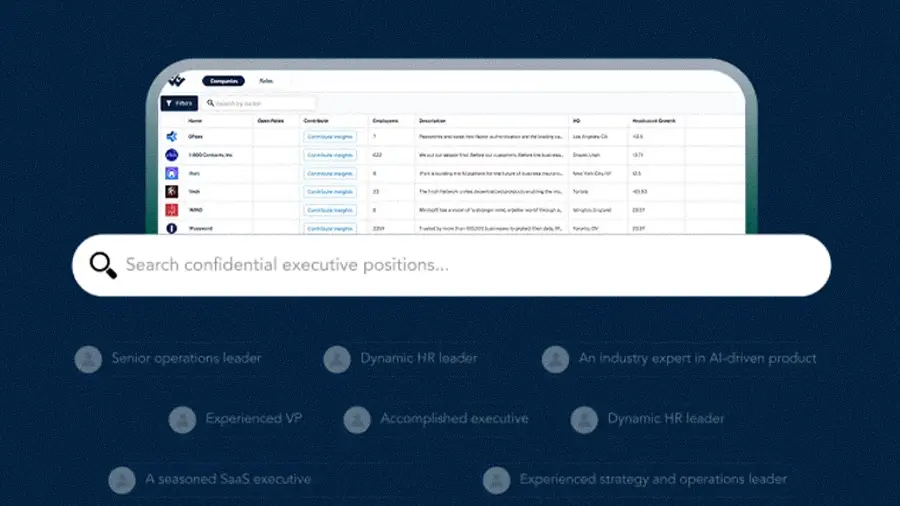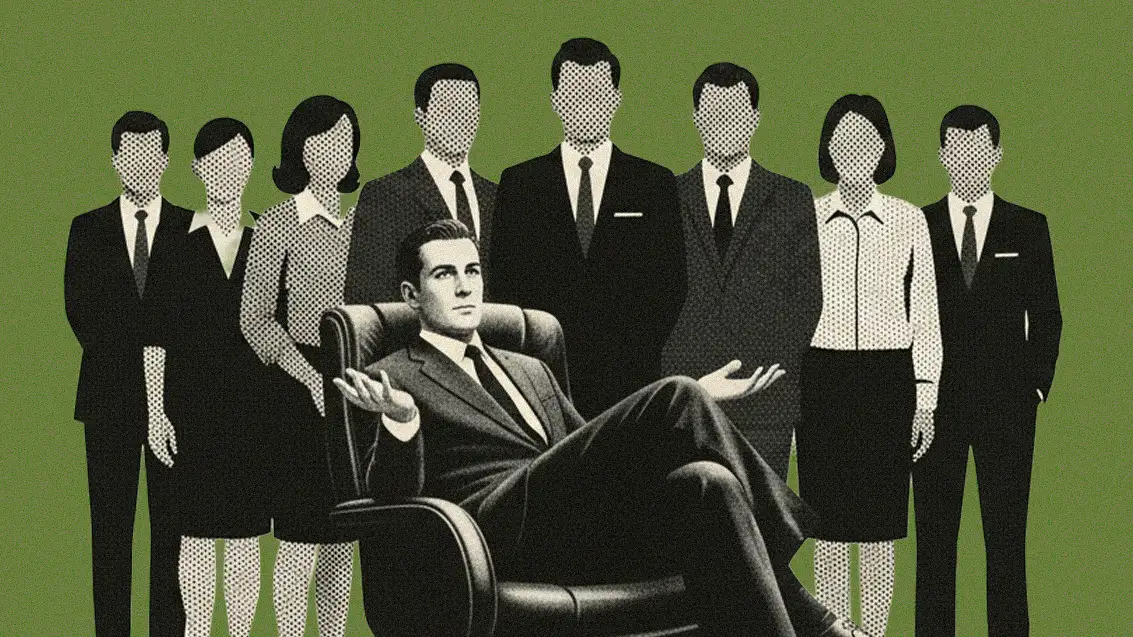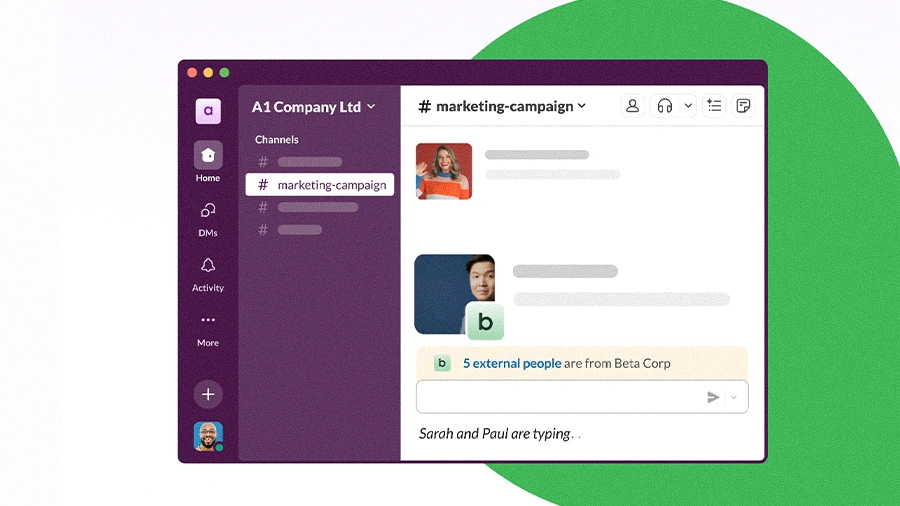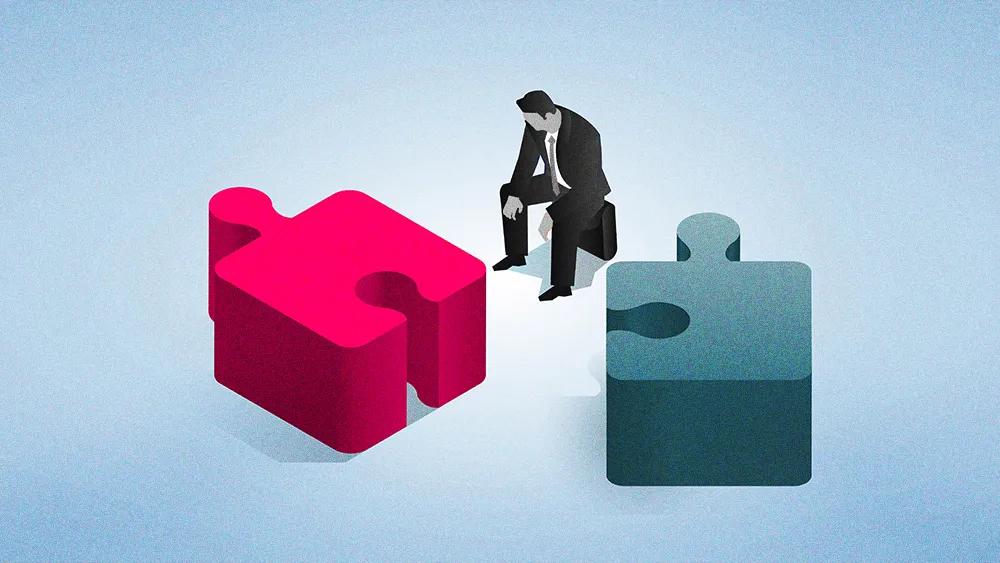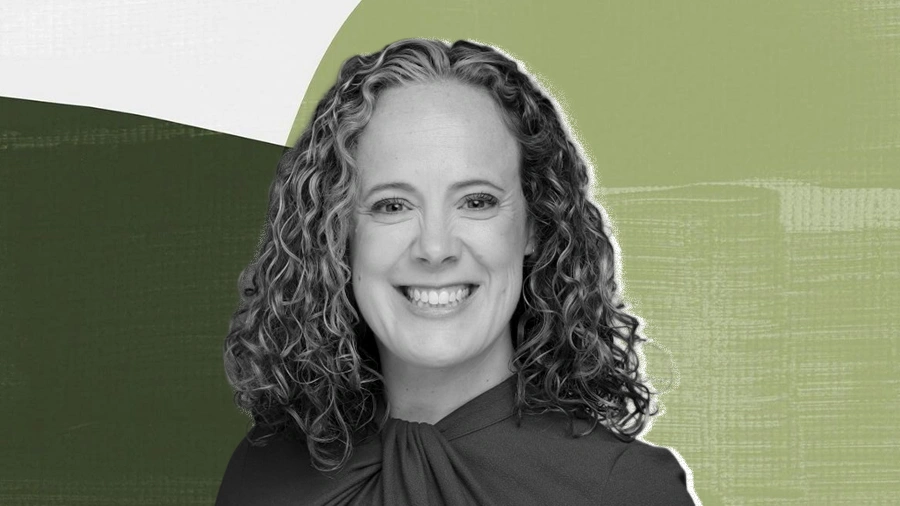As AI Upends Traditional Career Paths, Gen Z Seeks Stability in Human Skills and Adaptability
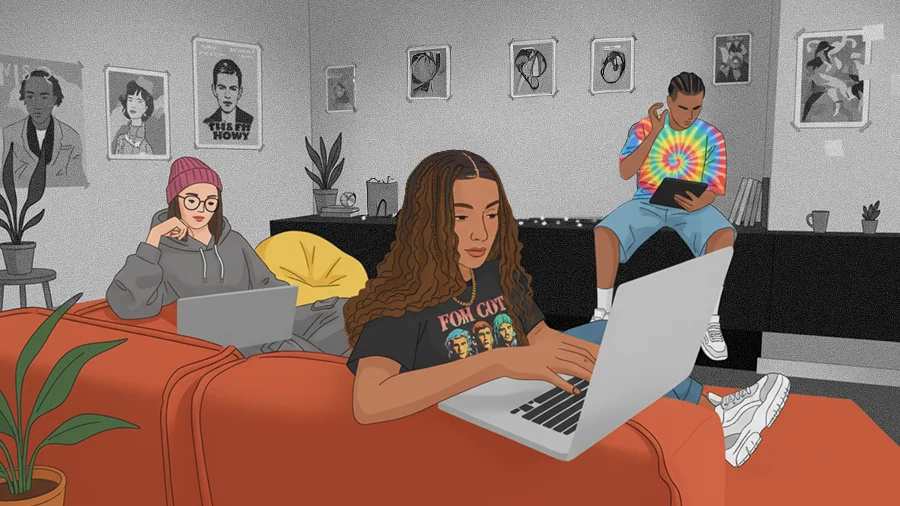
Key Points
AI adoption is disrupting the job market and wiping out many entry-level roles, leaving Gen Z to navigate an uncertain career path.
Andrea Miller, CEO of LeadWell Company, says the key to surviving this shift is developing human capabilities that AI can’t replace, like empathy and adaptability.
She urges companies to value emotional intelligence, protect middle management, and support alternative career paths such as trades and apprenticeships.
It's a bit of a mess right now. The career landscape is chaotic, and it's especially tough for Gen Z because the traditional career path has become uncertain. So many of the entry-level jobs that once offered a clear starting point have simply vanished.

Andrea Miller
CEO
LeadWell Company
AI has thrown the job market into a state of controlled chaos. Companies are cutting roles and chasing automation in the name of efficiency, leaving Gen Z to face a future where the first steps of a career are no longer guaranteed. As the old paths disappear, the way forward depends on something no machine can copy: genuine human capability.
Andrea Miller has spent her career helping people lead through change, especially when the systems around them start to shift. As the CEO of LeadWell Company, she’s coached leaders in more than 50 countries and worked with organizations like UNHCR and Siemens Healthineers on complex, human-centered transformations. In her view, the future of work belongs to those who can stay human while everything else becomes automated.
“It’s a bit of a mess right now. The career landscape is chaotic, and it’s especially tough for Gen Z because the traditional career path has become uncertain. So many of the entry-level jobs that once offered a clear starting point have simply vanished,” says Miller. She explains that while companies feel a “fiduciary responsibility” to adopt AI, the most effective path forward involves elevating human capabilities.
The human solution: “Lean into those things that make us more human, because AI cannot replace that,” she says. “When you’re having a problem at work, you need a person to talk to. It’s just not going to work to talk it out with ChatGPT.”
Robots need not apply: A good starting point, Miller suggests, is to reframe skills once dismissed as “soft” as core business competencies. In an automated world, our core human attributes—especially emotional intelligence—are becoming a primary source of economic value. “I don’t want a robot doing my end-of-life care. There’s a real shortage of healthcare providers, and these are roles that robots still can’t fill. We need more people in these professions, which are good-paying jobs.”
Miller believes these skills can only grow in the right environment, and cutting middle managers to save money is one of the worst moves a company can make. Good managers create spaces where people feel safe to be honest and admit what they don’t know. That kind of openness fuels authenticity, and authenticity is what gives humans the edge in a world where AI outputs can start to sound the same.
Emotionally invested: “Cutting middle management to save money is a huge mistake,” she says. “It’s bad for business and bad for people. What we need instead is more emotional intelligence. Everyone’s anxious right now, no matter where they sit in the organization, and the only way to get the best out of people is to actually understand them.”
Successfully pivoting to human-centric skills requires a commitment to continuous learning. Miller proposes practical, low-cost solutions like reverse mentorship and even using AI itself to create bespoke training. It’s about building a culture where understanding your team members’ unique styles can be the key to success.
A two-way street: “You can implement mentorship, including reverse mentorship. Have Gen Z staff work with older employees who aren’t comfortable with new technologies, and have the senior staff work with younger employees to build their core leadership skills,” says Miller.
The children are our future: Young workers aren’t short on talent; they’re short on chances to prove it. “We often dismiss our young talent. It’s a pattern that happens generation after generation, but even more so with this one. We have to ask ourselves how we can better nurture the talent that’s right here and provide them with real opportunities.”
Miller explains that a foundational mindset of adaptability has become more important for any professional today than any single technical skill. “The biggest skill anyone can learn is how to learn. It’s about being comfortable with the fact that things are going to be a bit ambiguous and that we need to be open to what’s coming.” In her view, the professionals most likely to thrive will be those who can adapt, change, and embrace uncertainty as an inherent part of the modern career. From this perspective, resisting this constant state of flux only makes navigating one’s career more difficult.
Blue is the new gold: But the solution isn’t just about transforming the corporate ladder. It’s about finding new ladders altogether. “We used to always dismiss blue-collar jobs, but they’re an easy pathway with minimal school debt to a job that pays well, where you can leave at the end of the day and actually have a life. Our society has held the notion that these aren’t good jobs, but for many people, they’re great jobs.”
Ultimately, Miller validates the trend of younger generations ditching corporate ambitions for the trades, drawing on her international experience to challenge the long-held American belief that a four-year degree from a university is the only path to success. “During the ten years I lived in Geneva, I saw their system of apprenticeships, and it works. In the US, we have this pervasive notion that you haven’t chosen a good job if you don’t go to university. We need to be more open-minded about all the opportunities that are out there,” she concludes.
The biggest skill anyone can learn is how to learn. It's about being comfortable with the fact that things are going to be a bit ambiguous and that we need to be open to what's coming.

Andrea Miller
CEO
LeadWell Company
The biggest skill anyone can learn is how to learn. It's about being comfortable with the fact that things are going to be a bit ambiguous and that we need to be open to what's coming.

Andrea Miller
CEO
LeadWell Company
Related articles
TL;DR
AI adoption is disrupting the job market and wiping out many entry-level roles, leaving Gen Z to navigate an uncertain career path.
Andrea Miller, CEO of LeadWell Company, says the key to surviving this shift is developing human capabilities that AI can’t replace, like empathy and adaptability.
She urges companies to value emotional intelligence, protect middle management, and support alternative career paths such as trades and apprenticeships.

Andrea Miller
LeadWell Company
CEO

CEO
AI has thrown the job market into a state of controlled chaos. Companies are cutting roles and chasing automation in the name of efficiency, leaving Gen Z to face a future where the first steps of a career are no longer guaranteed. As the old paths disappear, the way forward depends on something no machine can copy: genuine human capability.
Andrea Miller has spent her career helping people lead through change, especially when the systems around them start to shift. As the CEO of LeadWell Company, she’s coached leaders in more than 50 countries and worked with organizations like UNHCR and Siemens Healthineers on complex, human-centered transformations. In her view, the future of work belongs to those who can stay human while everything else becomes automated.
“It’s a bit of a mess right now. The career landscape is chaotic, and it’s especially tough for Gen Z because the traditional career path has become uncertain. So many of the entry-level jobs that once offered a clear starting point have simply vanished,” says Miller. She explains that while companies feel a “fiduciary responsibility” to adopt AI, the most effective path forward involves elevating human capabilities.
The human solution: “Lean into those things that make us more human, because AI cannot replace that,” she says. “When you’re having a problem at work, you need a person to talk to. It’s just not going to work to talk it out with ChatGPT.”
Robots need not apply: A good starting point, Miller suggests, is to reframe skills once dismissed as “soft” as core business competencies. In an automated world, our core human attributes—especially emotional intelligence—are becoming a primary source of economic value. “I don’t want a robot doing my end-of-life care. There’s a real shortage of healthcare providers, and these are roles that robots still can’t fill. We need more people in these professions, which are good-paying jobs.”
Miller believes these skills can only grow in the right environment, and cutting middle managers to save money is one of the worst moves a company can make. Good managers create spaces where people feel safe to be honest and admit what they don’t know. That kind of openness fuels authenticity, and authenticity is what gives humans the edge in a world where AI outputs can start to sound the same.
Emotionally invested: “Cutting middle management to save money is a huge mistake,” she says. “It’s bad for business and bad for people. What we need instead is more emotional intelligence. Everyone’s anxious right now, no matter where they sit in the organization, and the only way to get the best out of people is to actually understand them.”

Andrea Miller
LeadWell Company
CEO

CEO
Successfully pivoting to human-centric skills requires a commitment to continuous learning. Miller proposes practical, low-cost solutions like reverse mentorship and even using AI itself to create bespoke training. It’s about building a culture where understanding your team members’ unique styles can be the key to success.
A two-way street: “You can implement mentorship, including reverse mentorship. Have Gen Z staff work with older employees who aren’t comfortable with new technologies, and have the senior staff work with younger employees to build their core leadership skills,” says Miller.
The children are our future: Young workers aren’t short on talent; they’re short on chances to prove it. “We often dismiss our young talent. It’s a pattern that happens generation after generation, but even more so with this one. We have to ask ourselves how we can better nurture the talent that’s right here and provide them with real opportunities.”
Miller explains that a foundational mindset of adaptability has become more important for any professional today than any single technical skill. “The biggest skill anyone can learn is how to learn. It’s about being comfortable with the fact that things are going to be a bit ambiguous and that we need to be open to what’s coming.” In her view, the professionals most likely to thrive will be those who can adapt, change, and embrace uncertainty as an inherent part of the modern career. From this perspective, resisting this constant state of flux only makes navigating one’s career more difficult.
Blue is the new gold: But the solution isn’t just about transforming the corporate ladder. It’s about finding new ladders altogether. “We used to always dismiss blue-collar jobs, but they’re an easy pathway with minimal school debt to a job that pays well, where you can leave at the end of the day and actually have a life. Our society has held the notion that these aren’t good jobs, but for many people, they’re great jobs.”
Ultimately, Miller validates the trend of younger generations ditching corporate ambitions for the trades, drawing on her international experience to challenge the long-held American belief that a four-year degree from a university is the only path to success. “During the ten years I lived in Geneva, I saw their system of apprenticeships, and it works. In the US, we have this pervasive notion that you haven’t chosen a good job if you don’t go to university. We need to be more open-minded about all the opportunities that are out there,” she concludes.
